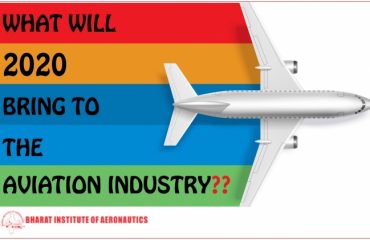Researches show up that over 80% of aircraft accidents are due to Human Factors in Aviation Maintenance. It includes the mistakes of pilots, air traffic controllers, AME/or technician etc.
Around 20% of in-flight engine shutdowns (machine/equipment failures) and almost 50% of delays or cancellation of flights are caused by human errors.
Moreover, lots of non-airworthy aircrafts are dispatched each year as a result of maintenance error.
These errors might results in big issues. And so its important to carefully deal with them and try hard to abolish them.
Here in this blog, let’s discuss all about human error in aviation maintenance and how to minimize its impacts.
Overview of Human Factors in Aviation Maintenance
Human Factors are all about understanding human behaviors and performances.
The motive of Human Factors is to understand people’s limitations and capabilities and how they influence a person’s actions and behaviors.
The History of Human Factors in Aviation is generally considered to have originated during World War-II. Prior to World War II, the main focus was designing the human to fit the machine, instead of designing machines to fit the human.
In order to improve safety and performance, the awareness of human factors is used in aviation to optimize the fit between people and the systems in the workplace.
In aviation maintenance, the human factors recognize the potential human errors and help us to reduce its influences.
Importance of Human Factors in Aviation Maintenance Course
As we have explained earlier that maximum accidental cases in aviation are occurred due to human errors.
Therefore, to control such mishaps, we need to know the human factors.
Such awareness is required in aviation environment as it is dynamic and constantly changing.
Therefore, human factors in Aircraft Maintenance Course is essentially important.
Most Common 12 Human Factors in Aviation Maintenance
There is not just one simple answer to fix or change how people are affected by certain conditions.
Therefore, the study and application of human factors is very complicated.
However, there are 12 Human Factors in aviation maintenance that commonly causes errors.
The common causes of error in aviation maintenance are:
- Lack of communication
- lack of knowledge
- distraction
- lack of teamwork
- fatigue
- lack of resources
- pressure
- lack of assertiveness
- stress
- lack of awareness
- norms
- Complacency
Therefore, it’s extremely important to control these factors in order to avoid the circumstances of future disasters.
The Influence of Human Factor in Aircraft Maintenance
Human factor is one of the safety barriers which is used in order to prevent accidents or air-mishaps.
It’s unpredictable factor because each individual has different understanding and behavior. People’s ability and capability to deal effectively and safely with the complexity, difficulty, pressures and workload of their daily tasks are also different.
Several times, when people work, human factors get in the way of safety.
Flying is considered to be the safest way to travel.
However, when unfortunately an incident or accident occurs, particularly one which leads to loss of life, it is much higher profile than most other modes of travel. Here, it particularly becomes the most dangerous mode of transportation.
Most of aviation accidents are not even the result of vehicle malfunction, but of human errors.
Thus, if the problem is not the equipment but is instead the human, what can be done to reduce such risks?
Here, training is the key safety tool for maintaining vigilance in the process of aircraft maintenance.
Human Factors in Aviation Maintenance: How Training Helps
Training in the world of aircraft maintenance is generally considered to be vocational and technical in nature.
However, in the case of human factors, the training is more interdisciplinary in nature as it include a fair degree of psychology.
The training allows technicians and their leadership to identify the human factors present in themselves and their respective employees.
Once the human factors are identified, the training in human factors help providing the tools to fix the problems.





